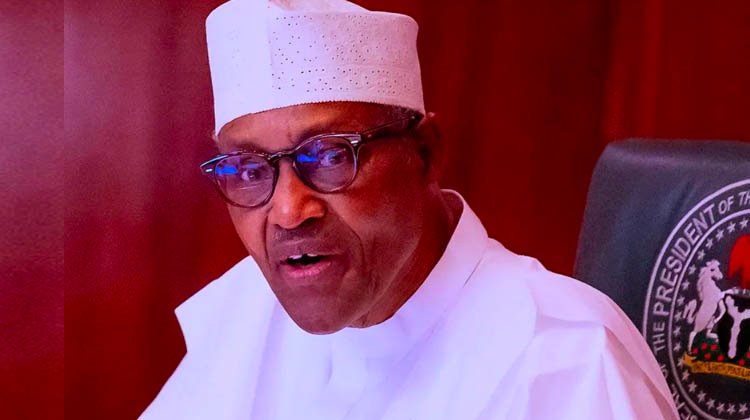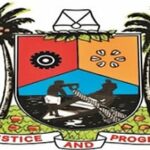
THESE are indeed ominous times for Nigeria. Its uncertain political environment is accentuated by unparalleled insecurity nationwide and worsened by a near-comatose economy. Unmistakably, the country is broke. One sure sign of impending disaster is the rising debt profile and the attendant prohibitive repayment obligations. The President, Major-General Muhammadu Buhari (retd.), and his cabinet should snap out of their laid-back mode and take effective steps to stop the drift.
The magnitude of the debt crisis was re-echoed in the recent alarm raised by the Centre for the Promotion of Private Enterprise. It warned that Nigeria’s national debt, including that of the Asset Management Corporation of Nigeria, and borrowings from the Central Bank of Nigeria, could hit the N50 trillion-mark soon. This calls for serious concern. Already, the government is spending 90 per cent of its revenue servicing debts, an unsustainable quagmire.
In its 2022 first quarter economic review, the CPPE stated, “The rising debt profile of the government raises serious sustainability concerns. The Debt Management Office had reported that the total public debt was N39.5 trillion as of December 2021. About 11.3 per cent of this debt is owed by the states and the FCT. However, when we take into account borrowings from the CBN and the stock of AMCON debt, the debt profile will be in excess of N50 trillion.”
The DMO last week released the schedule of local borrowings this year, showing that public debt would soon exceed N50 trillion, rising from the N39.55 trillion recorded in 2021. The DMO’s FGN Bonds Issuance Calendar for Q2 of 2022 indicated that N720 billion would be borrowed in the quarter.
Under Buhari, debt has been rising exponentially. The national public debt rose by 20.17 per cent year-on-year to N39.55 trillion in 2021 from N32.91 trillion the previous year, driven by increases in external debt as well as total domestic debt. The total external debt rose to $38.39 billion in 2021 from $33.34 billion in 2020; federal domestic debt rose to N19.24 trillion from N16.02 trillion in the same period.
Latest data on the fiscal activities of the Federal Government in 2022 confirmed that public debt may increase by N11.8 trillion to bring the year-end figure to a little above N51 trillion. In 2021, the government exceeded the budget deficit by about 48 per cent to about N7.69 trillion, from N5.2 trillion in the approved budget for the year. On Tuesday, the Lagos Chamber of Commerce and Industry restated its anxiety over mounting debt and rise in the debt-to-GDP ratio to 22.47 percent by December 2021. It flayed ongoing plans to add N6.3 trillion to the debt stock this year. This will push the debt stock to N45.86 trillion by December, it lamented.
Nigeria’s story is tragic. It exited a crippling 30-year-old debt burden in 2005/06 via a landmark debt buy-back with the Paris Club and the London Club of international creditors. This ensued in $18 billion debt forgiveness after Nigeria paid $12.6 billion in tranches.
But enabled by a rubber stamp National Assembly, Buhari has plunged the country into another debt trap. Public debt has expanded the most under the regime when compared to previous administrations since 1999, with the foreign debt component growing over three times more than the combined figure recorded by the previous three administrations.
For instance, Olusegun Obasanjo inherited a foreign debt profile of $35 billion in 1999 and arranged a buy-back deal that wiped $30 billion off the books.
The Umaru Yar’Adua government added $1.39 billion to the debt stock; the Goodluck Jonathan administration incurred additional debt, leaving the country’s total foreign debt at $10.31 billion when it exited power mid-2015. On the domestic front, Buhari met N8.39 trillion, but by December 2020, it stood at N16.02 trillion and N19.24 trillion as recorded by the DMO.
The regime’s profligate borrowing and spending has to stop. Significantly, the country that does not produce anything tangible for the international market other than crude oil should be prudent. Spending 90 per cent of revenue on debt servicing is certainly not sustainable; it leaves next to nothing for capital projects other than paying workers’ salaries.
Rather than resorting to endless borrowing, the Federal Government should explore other avenues of boosting revenue. For instance, the opaque nature of the crude oil business should be made transparent and every dollar realised from crude oil sale properly accounted for. Fiscal leakages should be blocked.
There should be no further delay in recovering the $62 billion oil revenue owed by major oil companies and sanctioned by the Supreme Court to be paid to the government since October 2018. If recovered, the amount will lift the economy.
Gross indiscipline in the management of the country’s resources must also be tackled. For instance, the Senate had established that many Federal Government Ministries, Departments, and Agencies did not remit over N3 trillion to the Consolidated Revenue Fund between 2014 and 2020, a figure that must have risen well above that now. This is in addition to the failure of the MDAs to remit one per cent stamp duty revenue within the same period. Revenue generating agencies are statutorily expected to remit 80 per cent of whatever accrues to them as operational surplus into the coffers of the Federal Government. The law should be enforced.
The government should arrest the massive theft of crude oil, widen the tax net, and privatise most of the infrastructure it borrows to put in place like the airport terminals, railways and seaports.
The NASS, a shamelessly pliant parliament, should redeem its image and stop approving every request for external borrowing without due interrogation of the sources of repayment and the likely impact on the coming generation of Nigerians.
The government should cut expenditure and undertake reforms that will scale down the size of its bureaucracy, reduce governance cost, ease the fiscal burden and boost revenue generation.
Copyright PUNCH.
All rights reserved. This material, and other digital content on this website, may not be reproduced, published, broadcast, rewritten or redistributed in whole or in part without prior express written permission from PUNCH.
Contact: [email protected]





